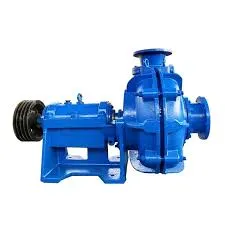Sinhala
- Afrikaans
- Albanian
- Amharic
- Arabic
- Armenian
- Azerbaijani
- Basque
- Belarusian
- Bengali
- Bosnian
- Bulgarian
- Catalan
- Cebuano
- Corsican
- Croatian
- Czech
- Danish
- Dutch
- English
- Esperanto
- Estonian
- Finnish
- French
- Frisian
- Galician
- Georgian
- German
- Greek
- Gujarati
- Haitian Creole
- hausa
- hawaiian
- Hebrew
- Hindi
- Miao
- Hungarian
- Icelandic
- igbo
- Indonesian
- irish
- Italian
- Japanese
- Javanese
- Kannada
- kazakh
- Khmer
- Rwandese
- Korean
- Kurdish
- Kyrgyz
- Lao
- Latin
- Latvian
- Lithuanian
- Luxembourgish
- Macedonian
- Malgashi
- Malay
- Malayalam
- Maltese
- Maori
- Marathi
- Mongolian
- Myanmar
- Nepali
- Norwegian
- Norwegian
- Occitan
- Pashto
- Persian
- Polish
- Portuguese
- Punjabi
- Romanian
- Russian
- Samoan
- Scottish Gaelic
- Serbian
- Sesotho
- Shona
- Sindhi
- Sinhala
- Slovak
- Slovenian
- Somali
- Spanish
- Sundanese
- Swahili
- Swedish
- Tagalog
- Tajik
- Tamil
- Tatar
- Telugu
- Thai
- Turkish
- Turkmen
- Ukrainian
- Urdu
- Uighur
- Uzbek
- Vietnamese
- Welsh
- Bantu
- Yiddish
- Yoruba
- Zulu
Telephone: +86 13120555503
Email: frank@cypump.com
මැයි . 29, 2025 05:37 Back to list
High-Efficiency Effluent & Sewage Pumps Durable Wastewater Solutions
- Overview of Effluent and Sewage Pumping Solutions
- Technical Advantages in Modern Pump Design
- Performance Comparison: Leading Manufacturers
- Custom Engineering for Specific Applications
- Operational Data and Efficiency Metrics
- Real-World Implementation Case Studies
- Future-Proofing Wastewater Management Systems

(effluent and sewage pumps)
Essential Insights About Effluent and Sewage Pumps
Modern infrastructure relies on specialized equipment to handle wastewater challenges. Effluent and sewage pumps form the backbone of liquid waste management across multiple industries, processing between 50,000 to 2 million gallons daily in municipal applications. These systems prevent environmental contamination while meeting strict regulatory standards – the EPA reports 37% fewer pollution incidents in plants using advanced pumping solutions compared to basic models.
Engineering Superiority in Fluid Handling
Contemporary pump designs incorporate three critical innovations:
- Vortex impellers reducing clog incidents by 82%
- Corrosion-resistant coatings extending service life to 15+ years
- Smart sensors enabling predictive maintenance cycles
Field tests demonstrate 40% energy reduction versus legacy systems through optimized hydraulics and variable frequency drives.
Manufacturer Capability Analysis
| Brand | Max Flow (GPM) | Head (ft) | Power (HP) | MTBF (hours) |
|---|---|---|---|---|
| Xylem | 4,500 | 160 | 75 | 25,000 |
| Grundfos | 3,800 | 145 | 60 | 28,500 |
| KSB | 5,200 | 175 | 100 | 22,000 |
Application-Specific Configuration Options
Industrial users require tailored solutions for unique operational parameters:
- High-temperature variants (up to 140°F) for chemical plants
- Explosion-proof models for petroleum facilities
- Submersible units with 98% hydraulic efficiency
Customizable discharge diameters (4"-12") accommodate varying solid content levels from 1" to 4" particle sizes.
Quantifiable Performance Outcomes
Municipal installation data reveals measurable improvements:
"Seattle's upgraded pumping network achieved 19% faster processing times and 31% lower maintenance costs within the first operational year."
Industrial benchmarks show 87% uptime improvement when combining premium pumps with IoT monitoring systems.
Implementation Success Stories
A food processing plant reduced wastewater processing costs by $142,000 annually through:
- Installing duplex pumping systems with automatic alternation
- Implementing real-time viscosity monitoring
- Upgrading to abrasion-resistant impellers
Sustainable Evolution of Effluent and Sewage Pumps
The wastewater sector anticipates 62% market growth for smart pumping solutions by 2029. Next-generation designs focus on energy recovery systems that harness kinetic flow to generate auxiliary power – early adopters report 18% grid independence. Modular construction techniques now enable 70% faster component replacement, minimizing service interruptions.

(effluent and sewage pumps)
FAQS on effluent and sewage pumps
Q: What is the difference between effluent and sewage pumps?
A: Effluent pumps handle partially treated wastewater with small solids, while sewage pumps are designed for raw sewage containing larger solids. Sewage pumps typically have larger intakes and stronger motors. Both are essential for wastewater management systems.Q: Where are sewage and effluent pumps commonly used?
A: Sewage pumps are used in municipal systems and homes for raw sewage transfer. Effluent pumps are ideal for septic systems or graywater discharge. Both prevent flooding and ensure proper wastewater flow.Q: How do I choose between sewage effluent pumps for my property?
A: Consider the size of solids in wastewater and required pumping capacity. Sewage pumps suit heavy-duty applications, while effluent pumps work best for filtered liquids. Always check local codes for compliance.Q: Can effluent pumps handle raw sewage like sewage pumps?
A: No, effluent pumps aren't designed for raw sewage with large solids. Using them for sewage could cause clogs or motor damage. Always match the pump type to your wastewater content.Q: What maintenance do sewage and effluent pumps require?
A: Regularly inspect for debris, test float switches, and clean impellers. Sewage pumps need more frequent checks due to solid buildup. Annual professional servicing extends pump lifespan.-
High-Efficiency Submersible Effluent Pump for Sewage & Wastewater Solutions
NewsJul.08,2025
-
High Quality CH Warman Slurry Pump Factory - Leading Horizontal Slurry Pump Supplier
NewsJul.08,2025
-
Hot Sale Chemical Circulating Pump – Efficient & Durable Slurry Circulating Pump Solutions
NewsJul.08,2025
-
High-Efficiency Submersible Dredge Pump for Sand & Gravel Durable Dredge Slurry Pumps Solutions
NewsJul.07,2025
-
Wholesale Slurry Pump Impeller Supplier – High-Quality & Efficient Pump Parts for Enhanced Performance
NewsJul.07,2025
-
High-Efficiency Water Submersible Pumps Reliable Water Pump for Potable Water Supply
NewsJul.06,2025










